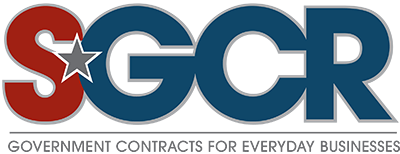A prime contractor is a company or entity hired directly by the federal government to oversee and execute large-scale projects. They are responsible for managing the entire project, including hiring subcontractors, coordinating tasks, and ensuring compliance with federal regulations and contractual obligations. This article will explore what is prime contractor roles, responsibilities, and the importance of prime contractors in government projects.
Key Takeaways
-
Prime contractors, central to federal contracts, manage and ensure compliance with government projects, hiring subcontractors and overseeing all aspects from start to finish.
-
Prime contractors hold comprehensive responsibilities including project coordination, regulatory compliance, and active recruitment of small businesses for subcontracting, which supports economic diversity.
-
Becoming a prime contractor involves registering with the System for Award Management (SAM), obtaining a Unique Entity Identifier (UEI) number, and meeting federal requirements for compliance and documentation.
Understanding Prime Contractors

Prime contractors, also known as federal government contractors, serve as the central figures in federal contracts, with the responsibility for comprehensive execution and management of government projects. These companies or entities work directly with the federal government, procuring and utilizing resources, and managing subcontractors to meet the contractual obligations outlined in their agreements. Their role is multifaceted, involving not just the completion of the project but also ensuring compliance with various federal regulations and standards.
Prime contractors have a wide-ranging scope of work. They are tasked with hiring subcontractors, coordinating their workflows, and ensuring that all aspects of the project are completed on time and within budget. This involves a high level of responsibility and accountability, as prime contractors must manage both the resources and subcontractors effectively to fulfill their obligations.
Regulatory compliance is a critical aspect of their responsibilities, ensuring that all activities adhere to federal laws and guidelines.
The successful completion of government projects heavily relies on the role of prime contractors. They often act as the bridge between the government and smaller, more specialized subcontractors, ensuring that every component of the project is executed to the highest standards. By understanding the intricacies of prime contracting, businesses can better position themselves to take advantage of government contracting opportunities and expand their operations.
Definition of Prime Contractor
A prime contractor refers to an entity that receives a government contract to oversee and carry out a project. These entities can range from large, well-known private companies like Lockheed Martin and Boeing to smaller firms with specialized capabilities. The prime contractor’s primary responsibility is to oversee the project’s execution, ensuring compliance with all terms and regulations outlined in the contract. This involves coordinating various aspects of the project and often hiring subcontractors to complete specific tasks. Additionally, prime contractors must manage all contractual obligations to ensure the project’s successful completion.
Role in Federal Contracts
In the context of federal contracts, prime contractors take charge of the comprehensive management of the project from its inception to its conclusion. They are responsible for overall project execution, which includes:
-
Hiring subcontractors and ensuring regulatory compliance
-
Coordinating their work
-
Ensuring the project meets all regulatory and contractual requirements
-
Monitoring compliance with flow-down clauses, subcontracting plans, and other regulatory requirements
-
Ensuring that all subcontractors adhere to these standards
This level of oversight is crucial for maintaining the integrity and success of government projects.
Importance in Government Projects
The successful realization of federal contracts greatly depends on prime contractors fulfilling their contractual obligations. They ensure that all project components are executed to the required standards and timelines. Additionally, prime contractors are obligated to actively recruit small businesses for subcontracts, which is vital for meeting federal requirements and supporting the broader economic ecosystem.
This recruitment helps diversify the pool of government contractors and provides opportunities for smaller businesses to participate in large government projects.
Key Differences Between Prime and Subcontractors

Grasping the distinct differences between prime contractors and subcontractors is vital to traverse the terrain of government contracts. Prime contractors work directly with the government and are responsible for the overall execution of the project. In contrast, subcontractors work for other contractors and do not have direct contracts with the government. This distinction affects their roles, responsibilities, rights, obligations, and payment structures, including their contractual obligations, which we will explore in detail.
Responsibilities
Prime contractors shoulder the overarching responsibility for the entire project, along with any ensuing delays or problems. They are accountable for managing all aspects of the project, ensuring that it is completed on time and within budget. This includes coordinating with subcontractors, who are tasked with specific portions of the project such as technical support or providing specialized services.
Prime contractors must also ensure that all subcontractors comply with relevant regulations and contract clauses, a process often confirmed through regular reporting and compliance reviews to maintain regulatory compliance.
Rights and Obligations
Prime contractors possess the authority to select subcontractors based on factors like reasonable rates and dependability. However, they must also adhere to certain obligations, such as:
-
Implementing a small business subcontracting plan as outlined in FAR 52.219-9, which includes specific contractual obligations
-
This plan sets goals for subcontracting to various small business categories
-
Requires prime contractors to monitor and enforce compliance with these goals through documentation.
Additionally, prime contractors may need to flow down specific contract clauses to their subcontractors to ensure regulatory compliance.
Payment Structures
The payment terms for prime contractors and subcontractors can differ greatly, influenced by various factors such as their role in the project, area of expertise, and prevailing industry standards. Prime contractors are responsible for paying subcontractors, and these payment structures are often outlined in the subcontracting agreements, which detail the contractual obligations of each party.
The terms can include milestones, deliverables, and timelines, ensuring that all parties are compensated fairly and promptly for their contributions to the project.
How to Become a Prime Contractor

The journey to becoming a prime contractor entails numerous critical steps, all aimed at preparing the business to comply with the stringent requirements of federal contracts. The process begins with registering with the System for Award Management (SAM), obtaining a Unique Entity Identifier (UEI) number, and meeting all federal requirements. Ensuring regulatory compliance is also a crucial part of this process.
These steps are essential for positioning your business to bid on and win government contracts, ensuring regulatory compliance, and opening up a new avenue for growth and opportunities.
Registering with SAM
The journey to becoming a prime contractor commences with registering your business with the System for Award Management (SAM). This registration is mandatory for any business looking to bid on federal contracts. The SAM registration process involves providing detailed information about your business, which then becomes accessible to government agencies looking for contractors.
This not only enables you to bid on contracts but also allows agencies to evaluate your business capabilities and services, ensuring regulatory compliance.
Obtaining a UEI Number
Securing a Unique Entity Identifier (UEI) number constitutes a vital stage in the process of becoming a prime contractor for the federal government. The UEI number replaces the DUNS number and is required for registration in SAM. This identifier enables businesses to participate in federal contracting opportunities, making it an essential component of the application process.
Without a UEI number, businesses cannot complete their SAM registration, which is a prerequisite for bidding on government contracts and ensuring regulatory compliance.
Meeting Federal Requirements
For businesses aspiring to become prime contractors, complying with federal requirements is of utmost importance. This involves:
-
Assessing the reliability and performance of your business
-
Ensuring compliance with various federal standards
-
Obtaining the necessary certifications
-
Passing security clearances
-
Being prepared for the commitment and paperwork involved in government contracting.
Meeting these federal requirements is crucial for regulatory compliance, especially for those aiming to work with the Department of Defense, where patience and dedication are essential given the complex requirements in the defense sector.
Benefits and Challenges of Being a Prime Contractor
The role of a prime contractor brings with it a unique combination of advantages and challenges. On the one hand, prime contractors enjoy greater control over their projects, the potential for higher earnings, and the flexibility to set their work schedules. On the other hand, they must navigate a complex web of compliance requirements, manage financial risks, and possess diverse skills to stay competitive in the market, including ensuring regulatory compliance. Ensuring regulatory compliance is crucial for adhering to federal regulations.
Advantages
A significant advantage of being a prime contractor is:
-
The authority to steer entire projects, providing more control over their execution and results
-
The ability to set their own pricing, potentially leading to higher earnings
-
The flexibility to set their work schedules, aligning them with their personal availability
-
The ability to focus more on managing projects rather than performing physical labor themselves
This autonomy enables prime contractors to have more control and focus on the success of their projects while ensuring regulatory compliance.
Challenges
In spite of the benefits, prime contractors encounter a number of challenges. They must comply with various employer requirements, including reporting, training, and obtaining the necessary permits and licenses. Managing financial risks is another significant challenge, as prime contractors must constantly seek new clients while maintaining current contracts to ensure business growth.
Additionally, they need to possess diverse skills, including budget planning, marketing, and managing payroll, to stay competitive in the market while ensuring regulatory compliance.
Strategies for Winning Prime Contracts

Securing prime contracts necessitates a strategic approach encompassing the identification of opportunities, the preparation of competitive proposals, and the cultivation of robust relationships. By leveraging available resources and networking effectively, businesses can increase their chances of securing lucrative government contracts while ensuring regulatory compliance.
This section will provide practical advice on how to navigate these processes and position your business for success.
Identifying Opportunities
The initial step towards securing prime contracts is to identify contracting opportunities. Platforms like SAM.gov and USASpending.gov are invaluable resources for finding federal contracting opportunities and accessing historical award data. SAM.gov consolidates multiple federal procurement systems into one platform, simplifying the search process and making it easier for businesses to find relevant opportunities.
Additionally, USASpending.gov provides data on federal spending, helping contractors identify potential opportunities and align their offerings with government needs. Ensuring regulatory compliance is also crucial in this process, as it helps businesses meet the necessary standards and requirements.
Preparing Competitive Proposals
The preparation of competitive proposals is a key factor for securing government contracts. Proposals should:
-
Clearly demonstrate how your solutions meet the government’s needs
-
Showcase your expertise and past performance
-
Include references to successful past projects to enhance the credibility of your proposal.
Differentiating your company through technical excellence, innovative solutions, and competitive pricing can also increase your chances of winning contracts. Regularly reviewing and refining your proposal submission process, while ensuring regulatory compliance, can help improve quality and increase success rates.
Building Strong Relationships
Establishing robust relationships is fundamental to winning prime contracts. Networking with government agencies and attending contracting events can provide valuable insights and opportunities. Establishing connections with prime contractor liaisons can give you access to materials and guidance on doing business with them, ensuring regulatory compliance.
Joining proposal teams through teaming agreements helps build relationships and secure work share in large bids. Maintaining strong relationships with current and former subcontractors is also crucial for long-term success.
Compliance and Reporting for Prime Contractors
Adherence to compliance and reporting forms an integral part of being a prime contractor. Adherence to the Federal Acquisition Regulation (FAR) and maintaining thorough documentation are non-negotiable requirements. These regulations ensure that all federal procurement processes are transparent and standardized. Ensuring regulatory compliance is crucial for adhering to federal regulations.
Prime contractors must also fulfill regular reporting obligations to demonstrate compliance with subcontracting plans and other regulatory requirements.
Adhering to FAR Regulations
The Federal Acquisition Regulation (FAR) outlines the policies and procedures governing federal procurement, underscoring the need for dependable contractors with sufficient resources and satisfactory track records. Prime contractors must demonstrate their responsibility by adhering to these standards, which include limitations on subcontracting as outlined in 13 CFR 125.6.
Compliance with FAR regulations and regulatory compliance is crucial for maintaining eligibility for federal contracts and avoiding potential penalties.
Maintaining Documentation
The upkeep of comprehensive documentation is vital to successfully passing audits and compliance reviews. Proper documentation demonstrates adherence to subcontracting plans and FAR requirements, making it easier to verify compliance during reviews. This includes keeping detailed records of all subcontracting activities, compliance with flow-down clauses, and performance metrics.
Ensuring that all documentation is up-to-date and accurate can help prime contractors avoid issues during compliance reviews and maintain regulatory compliance.
Reporting Obligations
Prime contractors are obligated to regularly report via the Electronic Subcontract Reporting System (eSRS). This system helps federal agencies track subcontracting data and ensure compliance with subcontracting plans. Prime contractors must submit mid-year and annual subcontracting reports, detailing their subcontracting achievements and compliance status.
Timely and accurate reporting is crucial for maintaining good standing with federal agencies, ensuring regulatory compliance, and avoiding potential penalties.
Leveraging Small Business Programs

Small businesses, including women-owned small businesses, can utilize specific small business administration programs to enhance their prospects of securing government contracts. The Small Business Administration (SBA) offers various programs and resources designed to support small businesses in federal contracting.
Additionally, set-aside contracts reserve a portion of federal contracts for small businesses, creating significant opportunities for growth and participation in federal procurement while ensuring regulatory compliance.
SBA Programs
The SBA significantly aids small businesses in government contracting by offering access to a variety of programs and resources. The SBA maintains a directory of federal government prime contractors with subcontracting plans, which small businesses can use to identify and pursue subcontracting opportunities. Utilizing these resources can help small businesses navigate the complexities of government contracting and ensure regulatory compliance, increasing their chances of success.
Ensuring regulatory compliance is crucial for small businesses to adhere to federal regulations and succeed in government contracting.
Set-Aside Contracts
Set-aside contracts allocate a portion of federal contracts specifically for small businesses, paving the way for substantial growth opportunities and participation in federal procurement. In 2020, contracts aimed at small businesses, disadvantaged businesses, women-owned businesses, HubZone businesses, and service-disabled veteran-owned businesses amounted to $144 billion. These set-asides help diversify the pool of contractors and provide opportunities for small businesses to participate in large government projects.
By leveraging set-aside contracts, small businesses can gain valuable experience, ensure regulatory compliance, and build a strong track record in federal contracting.
Summary
Prime contractors play a critical role in the execution and management of government projects. Understanding the differences between prime and subcontractors, the steps to becoming a prime contractor, and the benefits and challenges involved are essential for success in federal contracting. Leveraging strategies for winning contracts and adhering to compliance and reporting requirements can significantly enhance your chances of securing lucrative government contracts. By taking advantage of small business programs and set-aside contracts, businesses can further position themselves for growth and success in the federal market. Embrace the opportunities, prepare diligently, ensure regulatory compliance, and watch your business thrive in the world of government contracting. Regulatory compliance is crucial to meet federal regulations and avoid potential penalties.
Frequently Asked Questions
What is a prime contractor?
A prime contractor is an entity responsible for managing and executing a project after being awarded a government contract. They oversee all aspects of the project and ensure compliance with contractual terms, regulations, and regulatory compliance.
Regulatory compliance is crucial for adhering to federal regulations.
What are the main responsibilities of a prime contractor?
The main responsibilities of a prime contractor include overseeing the project, managing subcontractors, and ensuring that the work is completed on time and within budget. Regulatory compliance is also a critical responsibility, ensuring adherence to federal regulations.
How can a business become a prime contractor?
To become a prime contractor, a business needs to register with the System for Award Management (SAM), obtain a Unique Entity Identifier (UEI) number, and satisfy all federal requirements, such as certifications and security clearances. This process is essential for establishing eligibility, credibility, and ensuring regulatory compliance in the federal contracting system.
What are the benefits of being a prime contractor?
Being a prime contractor offers greater control over projects, the potential for higher earnings, flexible work schedules, and the ability to focus on project management rather than physical labor. These benefits, along with ensuring regulatory compliance, make it an attractive option for many professionals. Adhering to regulatory compliance is crucial for maintaining federal standards and avoiding legal issues.
How can small businesses leverage set-aside contracts?
Small businesses can leverage set-aside contracts by taking advantage of SBA programs and pursuing opportunities reserved for small businesses within federal contracts. This can significantly benefit their business by ensuring regulatory compliance. Adhering to regulatory compliance is crucial for maintaining eligibility and avoiding penalties.


